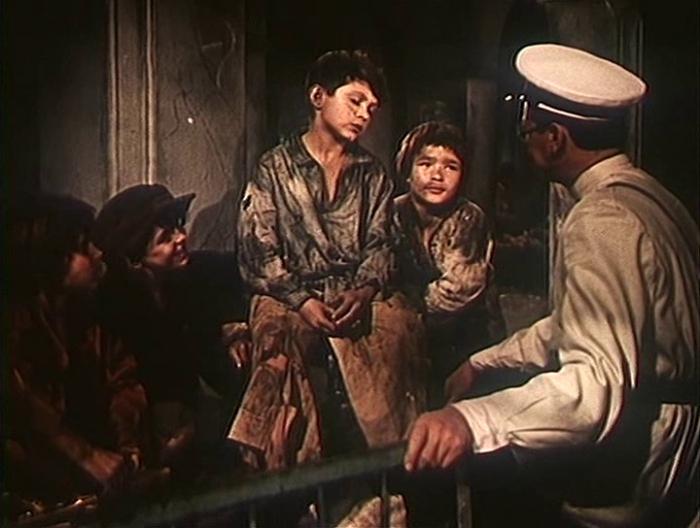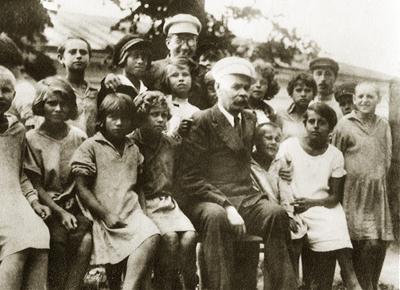The “Pedagogical Poem” by Makarenko, the content of which is both a practical tool for educating a full-fledged citizen of society and a vibrant literary work, is one of the “pearls” of Soviet literature. The events described in the novel are autobiographical, the characters bear real names, including the author himself. The key to Makarenko’s pedagogical system is the idea of educating the child’s personality through the collective. The approval of this idea is, in fact, dedicated to the "Pedagogical Poem" by Makarenko. The summary, like the novel itself, consists of 3 parts and 15 chapters (including the epilogue). Moreover, the poem was actually created “in hot pursuit”, directly in the process of the colony’s life.
"Pedagogical poem" Makarenko: a summary of the chapters
In the content of the novel, several key points can be distinguished: the foundation of the colony, the appearance of the first colonists and the first problems, the “turning point” in the behavior of the pupils, the formation of the collective, and social interaction.
Start of action
The action of the poem takes place in the 20s of the twentieth century in the USSR. The narration is conducted on behalf of the author himself (Anton Makarenko). "Pedagogical poem" begins with the fact that the protagonist establishes a colony to them. Gorky near Poltava for street children, among whom were juvenile delinquents. In addition to Makarenko himself, the colony's teaching staff consisted of two educators (Ekaterina Grigoryevna and Lidia Petrovna) and one delivery manager (Kalina Ivanovich). With material support, things were also difficult - most of the state property was neatly plundered by the immediate neighbors of the colony.
First colonists
The first pupils of the colony were six children (four were already 18 years old): Burun, Bendyuk, Volokhov, Goode, Zadorov, and Taranets. Despite the cordial reception (as far as the conditions of the colony allowed), the future colonists immediately made it clear that their life here was not particularly attractive. There was no talk of discipline: the colonists simply ignored their teachers, could leave for the city in the evening and return only in the morning. A week later, Bendyuk was arrested for the murder and robbery. The colonists also refused to do any chores.

This went on for several months. But once the situation changed dramatically. When during the next bickering Makarenko could not restrain himself and hit one of the colonists in front of the rest, the students suddenly changed their attitude towards the colony and its rules. For the first time they went to chop wood, faithfully completing their work to the end. “We are not so bad, Anton Semenovich! Said the “injured” colonist at the end of Makarenko. - It's gonna be all right. We understand". This was the beginning of the collective of colonists.
Colony rules
Gradually, the head manages to organize a certain discipline in the colony. "Raspberry" is canceled. From now on, everyone should clean their beds, duty is appointed in the bedrooms. It is forbidden to leave the colony without demand. Violators are not allowed back. Also, all pupils must attend school without fail.
Separately presented is the problem of theft in the work "Pedagogical Poem" by Makarenko. The summary below only emphasizes this. The collective of pupils by that time already totaled about thirty people. Food is constantly in short supply. Colonists steal provisions from a warehouse; Once the manager has lost money. The culmination is the theft of money from an old woman-housekeeper who was leaving the colony. Makarenko arranges the trial, they find the thief. Anton Semenovich resorts to the “people's court” method. Burun (a colonist convicted of theft) put up in front of the team. Pupils are indignant about his misconduct, they themselves are ready to punish him. As a result, Burun is sent to custody. After this incident, the pupil stopped stealing.
Team formation
Gradually, a real team is being formed in the colony. Pupils are guided not only by themselves, but also by others. A significant moment in the work "Pedagogical Poem" by Makarenko (a brief summary of this) is the creation of patrols. Colonists organized voluntary detachments protecting local territories from robbers, poachers, etc. Despite the fact that residents of nearby lands were apprehensive of such detachments, often without separating them from local bandits, for the collective of colonists it was a serious step in development. Former criminals were able to feel themselves as full members of society, benefiting the state.
In turn, the friendship of the colonists within the collective is growing stronger. The principle of "one for all and all for one" is actively applied.
Housewarming
There is a place for historical facts in the composition "Pedagogical Poem" by Makarenko. The summary of the work could not miss this moment: in 1923 the colony moved to the abandoned estate Trepke. Here, the colonists manage to realize their dream of agriculture. In general, the attitude of the inmates towards the colony no longer resembles what was at the beginning. All the children rightfully consider her their home, each makes its own contribution to the way of life and collective relations. A blacksmith, a carpenter, and others appear in the department of the colony. The children gradually begin to master working specialties.
Inmates of the colony have a new hobby - the theater. They stage performances, invite locals to them. Gradually, the theater gains real popularity. Inmates also begin to correspond with the famous Soviet writer Maxim Gorky.

In 1926, the guys moved to Kuryazh to organize life in a local colony, which is in poor condition. Not immediately, local students accept Gorky. It is difficult to bring them to the meeting. At first, none of the Kuryazha colonists wanted to work - all the work had to be done by Makarenko's subordinates. Often there are fights, even a commission of inquiry arrives for the hearing. At the same time, control on the part of the authorities over the activities of Makarenko is being strengthened. His pedagogical ideas and methods are found not only by supporters, but also opponents, in connection with this, the pressure on the teacher increases. Nevertheless, the combined efforts of Makarenko and the Gorky people gradually manage to establish the life of the Kuryazh colonists and organize a real full-fledged team. The climax in the life of the colony is its visit to Maxim Gorky.
Conclusion
As a result of the pressure, Makarenko had to leave the colony. For seven years, Anton Semenovich led the children's labor commune of OGPU named after F.E. Dzerzhinsky. Despite many criticisms, the contribution of Makarenko to the upbringing of the children's team is highly appreciated by modern pedagogy. Makarenko's system had its followers, including among the former pupils of the colony. The “Pedagogical Poem” by Makarenko is an example of the enormous, heavy, but at the same time incredibly significant, great work of a teacher bordering on a feat.
The result of the work, as we see from the work "Pedagogical Poem" by Makarenko (a brief summary emphasizes this), was the re-education of more than 3,000 colonists who became full-fledged citizens of Soviet society. The specifics of educational work is reflected in a number of literary works by Makarenko. "Pedagogical poem" briefly describes the basic principles of his educational activities in practice.